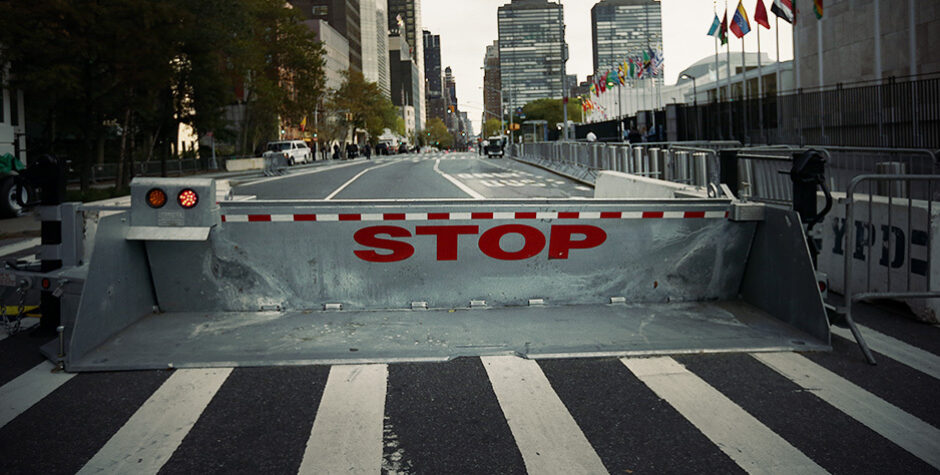Christians Stabbed in Sudan, Punished for Translating the Bible in Tajikistan, Banned From Sharing the Gospel in Greece – Highlighting the Many Faces of Persecution to the U.N.
Being stabbed and beaten, fined for translating the Bible into your own language, or charged for sharing your faith with your neighbor. These are real cases of persecution being carried out against Christians all around the world.
Here at the ACLJ, it is our responsibility to bring these violations to light so that they can be addressed. As we have told you, one of the many ways we are able to accomplish this is through the Universal Periodic Review (UPR) which allows us to shed much-needed light on these violations as well as provide recommendations to countries to address these violations. As part of our UPR submissions, we’ve highlighted restrictions on religious freedom in Sudan, Tajikistan, and Greece.
In Sudan, the ousting of President Omar-al Bashir in 2019 began to pave a way for a more open and free Sudan. However, even though the government has committed to religious freedom and tolerance, societal attitudes are not changed overnight and Christians still face the threat of violence. In one Sudanese case we highlighted, the Director of the Educational Curricula Center received death threats simply because he included the famous “The Creation of Adam” painting by Michelangelo in a history textbook which offended Muslims. In another case we highlighted, Christians were brutally attacked because of their faith:
In June 2020, Muslim men carried out an attack stabbing a Christian to death and wounding four other South Sudanese. This attack came after mosque leaders in east Khartoum Sudan called to rid the “Muslim area” of South Sudanese Christians. That same month, three Muslim men with rods, sticks, and rifles beat two Christians as they were leaving a market. Both men were in critical condition after being beat on the head.
In Tajikistan, the government exerts absolute control over religion and even has the power to approve or reject religious materials. Christians who are found in possession of non-approved religious material face confiscation of the materials and even jail time. Translating the Bible into their own language is also a violation of the law.
Four churches were accused of participating in a Bible translation project between August 2019 and January 2020. As a result, the church leaders were fined an amount equivalent to between $700 and $1000, a staggering amount given the average monthly salary in Tajikistan is equivalent to only $150. One local Christian stated that “[t]hey were fined for arranging a translation of the Bible into modern language” and that “[t]hey want to make us weary and stop”.
In Greece, the constitution specifically bans proselytizing, thus prohibiting an individual from openly sharing their faith with others. In one case we highlighted, a man was charged with proselytizing simply for talking about his faith with his neighbor. As we detailed to the U.N.:
Banning proselytising is very vague and leaves a lot of room for interpretation. Apparently in Greece, even a person who engages in friendly conversation with his neighbor can be prosecuted for proselytising. This is exactly what happened to Mr. Damavolitis, a Cretan farmer, married, with six children, who is also a Christian, although he is not a member of the majority Greek-Orthodox denomination. He and his friend and neighbor, Mr. Vamvoukas, had conversations about Mr. Damavolitis’ faith. Eventually, Mr. Vamvoukas also discussed religion with a Pentecostal pastor, and ultimately asked to be baptized at a Pentecostal church – notably, not even the church to which Mr. Damavolitis belonged. Later, during court proceedings on a separate issue, Mr. Damavolitis brought up his religious conversations with Mr. Vamvoukas. On this basis, the public prosecutor initiated prosecution against Mr. Damavolitis for “proselytising”, despite the fact that Mr. Vamvoukas never filed a complaint, and even testified that the conversations were not coercive.
In 2009, after several years of court proceedings, Mr. Damavolitis was sentenced to four months imprisonment convertible into a 1,200 euro fine, and was fined an additional 400 euros. This judgment was upheld on appeal in 2011 and then upheld by the Supreme Court of Appeals in 2013. In 2014 Mr. Damavolitis filed an application at the European Court of Human Rights (ECtHR). He alleged a violation of his right to freedom of religion, recognised in Article 9 of the European Convention on Human Rights.
This case is currently pending before the European Court of Human Rights. Our European affiliate, the European Centre for Law and Justice (ECLJ), was authorized by the ECtHR to intervene in this case and filed a written observation on February 15, 2020.
We will continue to shed light on these egregious violations of religious liberty. We must remind these countries that under the International Covenant on Civil and Political Rights (ICCPR), to which all these countries are bound, “Everyone shall have the right to freedom of thought, conscience and religion.” Stand with us as we hold these countries accountable to uphold religious freedom for all of their citizens.

